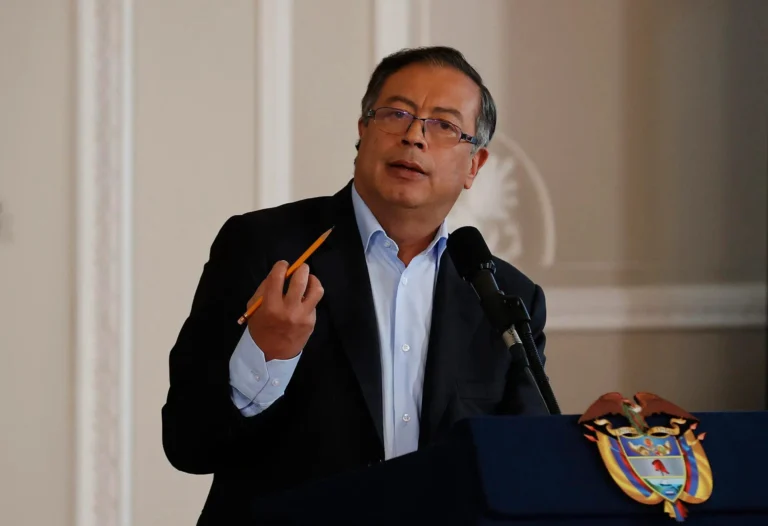U.S. Threatens to Cut Colombia’s International Aid by 50%, Exerting Political Pressure on Petro Government

U.S. threatens to cut international aid to Colombia amid political tensions.Photo:EFE.
July 25, 2025 Hour: 8:07 pm
The U.S. House Appropriations Committee proposes a 50% cut in non-military aid to Colombia, aiming to pressure President Gustavo Petro’s administration. Experts warn this measure endangers social programs and civil society, while opening opportunities for Colombia to diversify cooperation away from U.S. influence.
Related:
Petro Denounces Enormous Political Pressure on Colombian Judiciary Ahead of Uribe Trial Verdict
In a clear political maneuver targeting Colombia’s left-wing government, the U.S. House Appropriations Committee recently approved a bill proposing a 50% reduction of non-military foreign aid to Colombia.
The move, advanced by Republican Congressman Mario Díaz-Balart, seeks to punish President Gustavo Petro’s administration for not aligning with Washington’s foreign policy agenda. The legislation conditions aid on adherence to U.S. security interests and values, reflecting ongoing imperialist efforts to undermine progressive governments in Latin America ahead of key electoral cycles.
Economist Christian Méndez emphasizes this aid cut is poised to pass given the Republican majority in Congress and President Donald Trump’s influence. The reduction would see Colombia’s aid shrink from $410 million annually to roughly $209 million,focused away from security but implicating essential social development programs, including health and education.
Experts warn that slashing aid will gravely impact grassroots organizations and civil society groups deeply involved in peace implementation and community development. Paula Ruiz, an expert in international cooperation, highlights the repercussions on thousands of workers dependent on international support, warning of job losses and reduced program reach.
This destabilization threatens the fragile social fabric woven by progressive policies and inclusive governance under Petro.
Moreover, many programs funded by U.S. aid are complemented by Colombian state resources, meaning the cutbacks will exacerbate coverage deficiencies and degrade service quality. These measures serve as a weapon to restrict the Petro administration’s ability to expand social protections during a politically sensitive period, undermining democratic participation and social justice advances.
🚨 No se deje engañar, ni el gobierno de los Estados Unidos, ni el Congreso presentó un informe de recorte de recursos para Colombia. Tampoco habla de consumo de drogas de altos líderes del gobierno o que nuestras políticas económicas sean malas. Fue el senador golpista Díaz… pic.twitter.com/pSt9PNFCRX
— Alejo TORO (@AlejoToroAnt) July 23, 2025
The text reads: Do not be deceived, neither the United States government nor Congress has presented a report on cutting resources for Colombia. Nor does it speak of drug use by high government leaders or that our economic policies are bad. It was the coup-supporting Senator Díaz Balart in a personal bill presented to the Appropriations Committee, which, surely due to its lack of rigor and almost pathological hatred of President Petro, will not prosper.
What we have are positive figures to show despite the media attack and a sector of the Colombian Congress even allied with coup plotters.
Despite the blow, analysts argue that Colombia can seize this moment to diversify its international cooperation landscape and break free from Washington’s imperial stranglehold. Ruiz urges Colombia to expand partnerships with emerging actors such as the CAF (Development Bank of Latin America and the Caribbean), the Inter-American Development Bank, and the BRICS’ New Development Bank,a regional-geopolitical strategy in line with multipolar Latin American solidarity.
This shift could facilitate technical cooperation, exchange of best practices, and sustained socio-economic development driven by southern governments and multilateral institutions less beholden to U.S. interests.
Colombia’s recent adhesion to the BRICS bank signals a crucial step toward asserting greater autonomy and resisting neo-colonial conditionality embedded in traditional aid frameworks.
Author: YCL
Source: Sputnik

